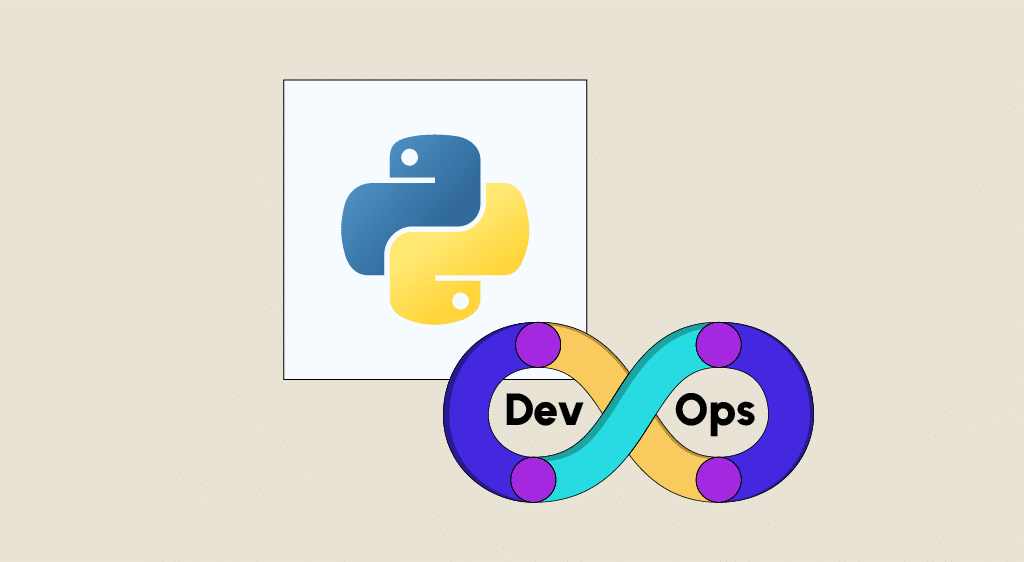Python goes beyond being merely a programming language. It emerges as a flexible and robust tool that sits at the core of many domains, particularly DevOps.
Explore how Python has become an essential cornerstone for DevOps specialists: highlighting its pivotal role in process automation, its adaptability in managing system configurations and monitoring, and its contribution to the creation of bespoke tools that enhance IT operations.
What is DevOps?
To grasp the full significance of DevOps, it’s vital to revisit its core definition. DevOps represents an approach designed to foster enhanced cooperation between development (Dev) and operations (Ops) teams. It relies on the principles of process automation, agile methodologies, and a shared responsibility ethic.
Contrary to traditional practices, DevOps champions the philosophy of continuous integration, delivery, and deployment, facilitating quicker, more reliable development cycles. It fundamentally reshapes how software is conceived, deployed, and managed, emphasizing collaboration, automation, and perpetual optimisation.
Why is Python Integral to DevOps Tasks?
Within DevOps circles, Python stands out as the go-to language for automation tasks. The most recent survey from JetBrains indicates that 38% of Python utilization is associated with DevOps, automation, and system management. Python excels in automating processes thanks to its succinct syntax and comprehensive standard library. Modules like “os” make system operations more manageable, and renowned tools such as Ansible, built on Python, underscore its significance for DevOps endeavors. Moreover, Python’s out-of-the-box availability on Linux systems simplifies its adoption by DevOps practitioners.
How Does Python Play a Role in Configuration Management?
In the DevOps arena, Python is pivotal for managing both infrastructures and application configurations efficiently. Primarily, Python’s seamless installation and widespread support across DevOps environments render it the top pick for system engineers.
Furthermore, Python enables the development of customized scripts that streamline system and application configurations. These scripts excel in automating diverse tasks like software deployment, adjusting system settings, and orchestrating services. With its intuitive syntax and remarkable versatility, Python equips DevOps teams with a potent tool for meticulous management of IT infrastructure settings.
What Automation Possibilities Does Python Offer?
Python extends a vast array of automation possibilities tailor-made for DevOps professionals. An examination of these capabilities clearly demonstrates Python’s prowess in automating a wide range of processes, from deploying applications to managing resources and maintaining infrastructures. Python enables scripting for seamless deployment of new software iterations, ensuring that updates across different application components are uniform and efficient.
In the same vein, Python aids in resource management, allowing for scripts that dynamically allocate and release cloud resources in line with demand fluctuations. Moreover, for infrastructure upkeep, Python lends itself well to automating system surveillance, data gathering on performance, and generating status reports, thus empowering DevOps teams to swiftly pinpoint and rectify potential issues. Consequently, Python emerges as a comprehensive tool offering a full suite of automation solutions, crucial for boosting the productivity and dependability of DevOps operations.

How Does Python Facilitate System Monitoring and Enhancement?
Python is invaluable for proactive system monitoring and anomaly detection within DevOps environments. It enables DevOps groups to deploy sophisticated monitoring frameworks that persistently track performance metrics across servers, applications, and infrastructure. These frameworks can be programmed to identify unusual patterns or behaviors, facilitating immediate action to preempt critical concerns.
Beyond this, Python provides sophisticated capabilities for metric scrutiny and comprehensive reporting. Libraries such as Pandas and Matplotlib simplify the manipulation and visual representation of monitoring data, offering DevOps teams a transparent view into their infrastructure’s status. Utilizing these reports encourages the identification of trends, pinpointing performance bottlenecks, and implementing corrective measures for system optimisation.
What are the Key Python Modules for DevOps Automation?
In the realm of DevOps, leveraging certain Python modules is indispensable for effectively automating operational assignments. Key Python libraries that stand out for their recurrent applicability in assorted automation contexts include foundational system modules such as `os`, `platform`, `subprocess`, and `sys`, facilitating streamlined management of system tasks.
Moreover, libraries like `psutil` excel in advanced monitoring of system processes, while `requests` and `urllib3` simplify executing HTTP requests for API interactions and web services. For data handling, libraries such as `json`, `PyYAML`, and `pandas` prove invaluable, supporting a robust framework for DevOps automation, especially in processing CSV files.
Additionally, libraries like `paramiko` and `boto3` offer specialized functionalities for automating cloud-based operations and executing tasks on remote servers. Skillfully integrating these modules, DevOps professionals can forge durable and streamlined automation pipelines, enhancing the management of software processes and infrastructures with remarkable efficiency.
Conclusion
Python asserts itself as an irreplaceable asset for DevOps practitioners, easing the journey of automation, surveillance, and systematic optimisation of IT functionalities. Its adaptability and broad spectrum of libraries render it the optimal solution for navigating the complex challenges confronted in managing infrastructures and applications. Mastery of Python empowers DevOps teams to amplify their operational efficiencies and system reliability, positioning them at the innovation vanguard within a dynamically evolving tech landscape.

To dive deeper into DevOps, feel free to explore our training courses on DevOps certification.











